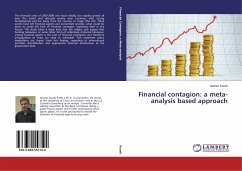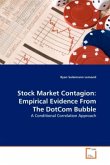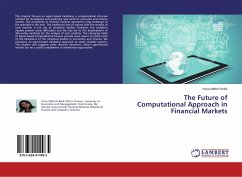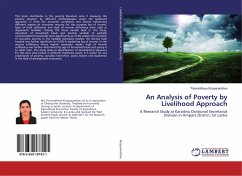The financial crisis of 2007-2008 was local initially, but rapidly spread all over the world and affected severly even countries with strong fundamentals and far away from the country of origin (the US). These events have left financial agents and economists wonder, what could be done to avoid this kind of financial contagion repeating itself in the future. The study takes a deep look into the subject and argues that herding behaviour or some other form of collectively irrational behaviour among financial agents is the root of financial contagions and therefore propagations of crises are close to inevitable. Two important policy implications are drawn from this finding, regarding to international portfolio diversification and appropriate financial architecture at the government level.
Bitte wählen Sie Ihr Anliegen aus.
Rechnungen
Retourenschein anfordern
Bestellstatus
Storno








